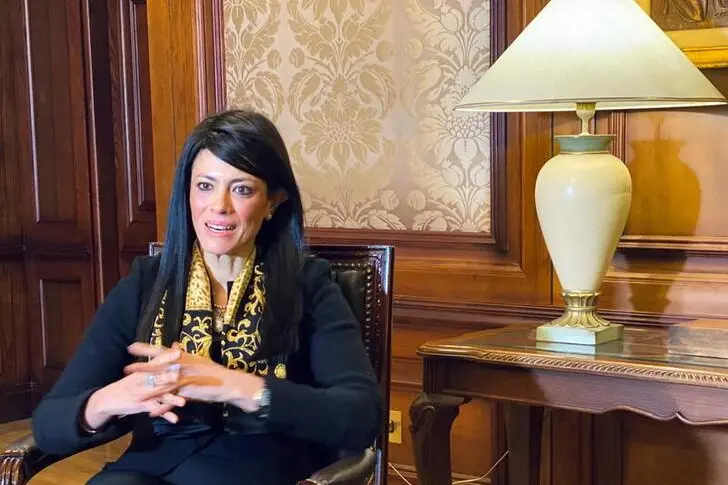PHOTO
CAIRO- Innovative financing tools provide a route to ensuring that commitments made at the COP26 climate summit are converted to action as Egypt plans for the follow-up event next year, the country's international cooperation minister said.
Scaling up climate mitigation and adaptation projects would be a challenge given the lower credit ratings of many countries that need to finance them, Rania Al Mashat said in an interview at the Reuters Next conference.
Such countries "are at a certain level of development and they are not polluting, but they are required to move very fast in the direction of commitments," Mashat said.
"I believe that going forward it is on all of us to try and see how we can create an action plan which is both conducive on the national side but also within the global agenda."
Egypt has a $25 billion development finance portfolio that has helped fund an infrastructure boom and protect the economy from the impact of COVID-19. It hosted a side event at COP26 to develop a framework on how to push blended finance, which uses a mix of public and private capital.
Ahead of next year's summit in Sharm el-Sheikh the government will look to showcase its own work to phase out coal in power generation, improve management of waste water, and launch the construction of new metro and high-speed rail lines, Mashat said.
Egypt was the first country in the Middle East and North Africa to issue green bonds, and has established a goal for 30% of public projects to meet environmental standards by 2024.
"These are messages that say a country at our stage of development is taking the climate agenda quite seriously, diversifying sources of finance, making sure that the projects are environmentally friendly," Mashat said.
Egypt, which has high potential for solar and wind power, recently brought forward a goal of producing 42% of its electricity generation from renewable sources to 2030 from 2035, The International Renewable Energy Agency has suggested Egypt could raise the target to 53%.
Benban solar plant in southern Egypt, one of the world's largest, was seen as an example of how to draw in new private sector participation in a country that has struggled to attract such investment due to the heavy presence of the state.
The most important positive outcome of COP26 was the high level of engagement from the private sector, Mashat said.
"Given the need to go from the billions to the trillions and see this operational on the ground, the presence of the private sector was quite encouraging."
(Editing by Mark Potter) ((Aidan.Lewis@tr.com; +20-1001174410;))





















